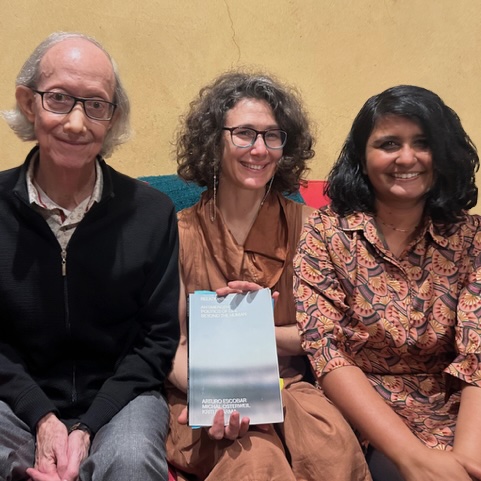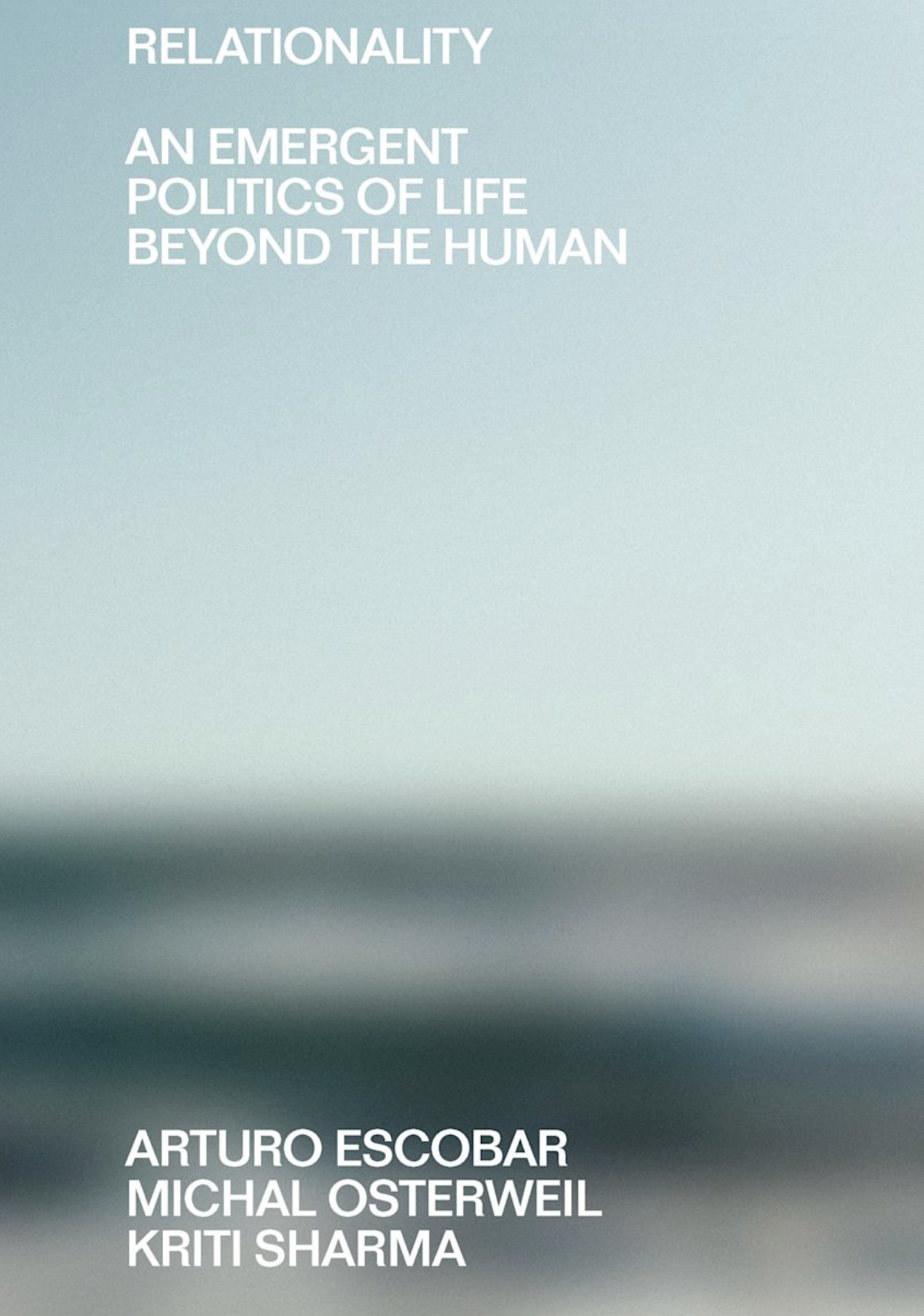At a time when the superstructures of human civilization seem terminally messed up – unable to address climate collapse, authoritarian capitalism, among many other wicked problems – I was thrilled to encounter a book that dares to imagine a fresh and compelling way forward. The book, Relationality: An Emergent Politics of Life Beyond the Human, is a big-hearted and poetic yet rigorous scholarly book.
On my latest episode of Frontiers of Commoning (Episode #68), I interviewed the three authors -- noted anthropologist Arturo Escobar and global studies professor Michal Osterweil, both at the University of North Carolina at Chapel Hill, and Kriti Sharma, a professor of critical race science and technology studies at UC Santa Cruz.

Relationality is not a treatise of policy prescriptions. It’s something more profound – an inquiry into the power of love and embodied presence as forces for liberation. It doesn’t look to politics, policy, or law as the primary levers for change, important as they are. Instead, the book confronts a more fundamental problem – our modern myths of the self and our dualistic assumptions about the separateness of everything.
The book attempts to imagine how we might emancipate our very sense of identity, as forged by capitalist modernity, by focusing on our relationships with other humans and the more-than-human world. The authors argue that we moderns can reinvent ourselves and the world on very different terms, but this quest must begin at some deeper, inner places.
They entice us into this process through poetry… trying to imagine the “mind” of seagrass as it adapts to changing environment over deep time… describing the limits of cognition as a way of knowing….and exploring the ways in which modern capitalism actively produces individualism and nonrelationality.
I was entranced by this unusual book because it explores themes that are at the center of my book with Silke Helfrich, Free, Fair and Alive, namely, that life is about relationality. We are deluded in thinking that humanity lives above and beyond nature, and that individuals are self-made heroes out of an Ayn Rand novel.
Escobar, Osterweil and Sharma approach this topic from many diverse sources, arguing that “interdependence is an altogether different foundation of reality and a vital standpoint for re-narrating and re-making life.” Rediscovering relationality is not simply an inner process, they note, but something that must occur in various social and political struggles as well, such as restorative justice projects and “spiritual activism.”
Relationality is ultimately not a work of social science or politics, but a biologically and spiritually informed vision of life. While we may see ourselves as separate from the earth and society, in fact all life is entangled in a complicated dance with other living organisms and processes. To convey this reality, the authors boldly step out their formal roles as scholars, and into the bodies of ordinary people trying to make sense of our times while imagining a better, achievable future.
At the core of this quest is the realization that ideological politics is at an impasse. The left / right debates about how to build a better world don’t really describe the on-the-ground realities that people are experiencing. They don't speak to the human spirit or offer credible pathways forward.
And so, the authors suggest, conventional politics must deconstruct itself and start an ontological conversation. We must begin to ask what it means to be human at this epic moment of transition.

Escobar, Osterweil and Sharma argue that the "old Left" put its faith in such misguided ideas as “a zero-sum, state-centered and object-based understanding of power; a linear notion of progress and development; a clear-cut, macropolitical understanding of success versus failure, and a rational and secular notion of political ideology.”
This political worldview also assumes that our imagined futures are binary choices such as “revolution versus reform, democracy versus socialism; difference versus collectivity; armed versus nonviolent struggle,” etc. But these binaries are too simple-minded for politics today and our very sense of humanity. As Osterweil explained, “What we found [in writing the book] are the limits in the imaginary and theories of the Left, which we ourselves have had.”
For example, she said, “this idea of valorizing the collective at the expense of the individual, as if it were an either/or game.” What really needs to be recognized “is that you can have the self-actualization of a self – but it is a meshed-work self, a networked self, a communal self – which helps prioritize the needs of the collective.”
What Escobar, Osterweil and Sharma propose is a shift of worldview that elevates the relationality of life to the center of political culture. Politics needs to enable “the work of making life,” especially in reconfiguring power, relationships, and collective purpose. This means a commitment to a “radical inclusiveness rather than political opposition.” It means seeing the relationships of everyday life as a force for changing the world. Politics are currently framed can’t deliver the change we need.
The authors identify five principles that lie at the heart of a relational politics: the role of contingency in life; the acceptance of non-normativity – that life is pluralistic and hybrid in nature; emergence as a creative force; a “heart-based epistemology” or language for expressing the human spirit; and radical uncertainty as a core part of life.
Needless to say, these are some radically different foundations for pursuing social change than those of the liberal market state. But these principles do provide some solid existential grounding for pursuing change, and avoiding arid, vague abstractions. As activist and author Toni Cade Bambara, “The most effective way to do it is to do it.”
The authors concede that their ideas are quite “counterintuitive in a Western political milieu,” but they insist that personal and social change must drive the external transformations we need. Inspired by the Zapististas, the book argues that people should aspire to “change the world without taking power,” rather than striving to “take power” through the state.
Escobar sees a hopeful future through what he calls “life-centered designing.” “Design as we know it has been one of the main technologies to create the world today,” he said. “For the most part, it hasn’t worked out so well, has it? So now there is an emerging movement in design fields and schools to reform design ontologically.”
By that, he means a reorientation of design so that it turns away from a dysfunctional cosmology whose narratives and practices create walls of separation. Escobar argues that we must ask, “Can we relationalize design?” – along with other disciplines like architecture, philosophy, and economics.
You can listen to my interview with Arturo Escobar, Michal Osterweil, and Kriti Sharma here.










Recent comments